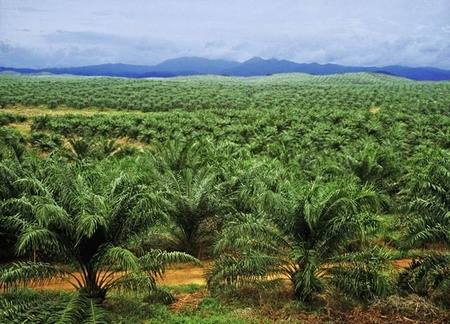Human impacts on the forests of the tropics are causing irreversible changes to these ecosystems yet the effects of these changes are poorly understood.
Now the ramifications of activities such as logging, deforestation and agricultural conversion on the web of life are to be explored by an international team of scientists which has been awarded a £4.6M grant by the Natural Environment Research Council.
The University of Aberdeen is leading a four-year study of tropical forests in Southeast Asia - the results of which should interest to policymakers, resource managers, climate change researchers, the oil palm industry, the carbon trading sector, tropical scientists and the conservation sector globally.
Dr Yit Arn Teh, principal investigator and senior lecturer at the University of Aberdeen, said: “Tropical forests are being cut down for timber and agriculture to meet global demands for food and natural resources. This leaves behind landscapes that are completely different from the natural ones that existed before human disturbance.
“Forest clearing and land conversion are leading to habitat loss and species extinctions at a rate that is unprecedented in Earth’s history. This problem is especially acute in South-east Asia, where the pace of land conversion is very high relative to the global average, and where we also see some of the highest levels of biodiversity worldwide.
“Logging and agricultural conversion in places like Borneo are threatening rainforest biodiversity; however, we still have a poor understanding of how humans are affecting not only charismatic, well-known species like the Asian elephant, hornbills and orangutans, but a whole host of other animals, plants and microbes that the public is often less aware of.
“Some of these less publicly visible organisms - like plants, insects and soil microbes - are in fact critical for sustaining living ecosystems because they form the basis of the food web and support communities of higher organisms like birds, monkeys, elephants and other vertebrates. Plants, insects and soil microbes are also responsible for ecological processes like photosynthesis, decomposition and nutrient cycling which, in turn, are globally important, because they determine whether tropical landscapes release or absorb greenhouse gases with the atmosphere.
“At the moment, we don’t have a clear picture of how tropical forest clearing and land conversion influences the diversity of plants, insects and soil microbes; nor do we fully comprehend how changes in the diversity of these three major groups may influence key ecological processes like photosynthesis, decomposition, nutrient cycling or greenhouse gas exchange.
“This makes it difficult for us to model and predict the environmental effects of human activity in the tropics, both today and in the future. It also makes it challenging to work-out the best means of sustainably managing tropical forests or agricultural landscapes.
“We’ll be investigating how land-use change in Malaysian Borneo has altered the diversity of plants, insects and soil microbes, spanning a land-use gradient that stretches from tropical old-growth forests through to logged forests, oil palm plantations and restored forests. We’ll be trying to understand how changes in the diversity of these three major groups, in turn, influences ecological processes and greenhouse gas exchange.
“We’ll also be working closely with our colleagues in other research groups to understand how changes to plant, insect and microbial diversity may affect higher organisms like birds or other vertebrates.
“Using cutting-edge airborne remote sensing and modelling techniques, we’ll try to extrapolate our smaller plot-level measurements to Borneo as a whole.
“Further development of these new remote sensing and modelling techniques is also exciting because it opens up the possibility of studying large parts of the tropics from the air, opening up previously remote or inaccessible areas for scientific investigation.
“Also the tropics are so vast – it’s often difficult to develop a comprehensive picture of what’s happening across a country, region or continent based on a limited number of ground measurements, necessitating larger-scale measurement and modelling tools.
“As human activity expands and intensifies around the tropics, answers to the questions we’re posing here about the relationship between land-use change, biodiversity and ecosystem functioning will become increasingly important as we seek ways and means of making our tropical land management practices more sustainable and environment-friendly.”
BALI – or the Biodiversity And Land-use Impacts on Tropical Ecosystem Function consortium – is the name of the research collaboration which also involves the Universities of Cambridge, Edinburgh, Lancaster, Liverpool, Oxford, York, the Centre for Ecology and Hydrology at Lancaster and the Natural History Museum in London. It also brings together a host of international partner organisations from Malaysia, Japan, Brazil and the USA.


